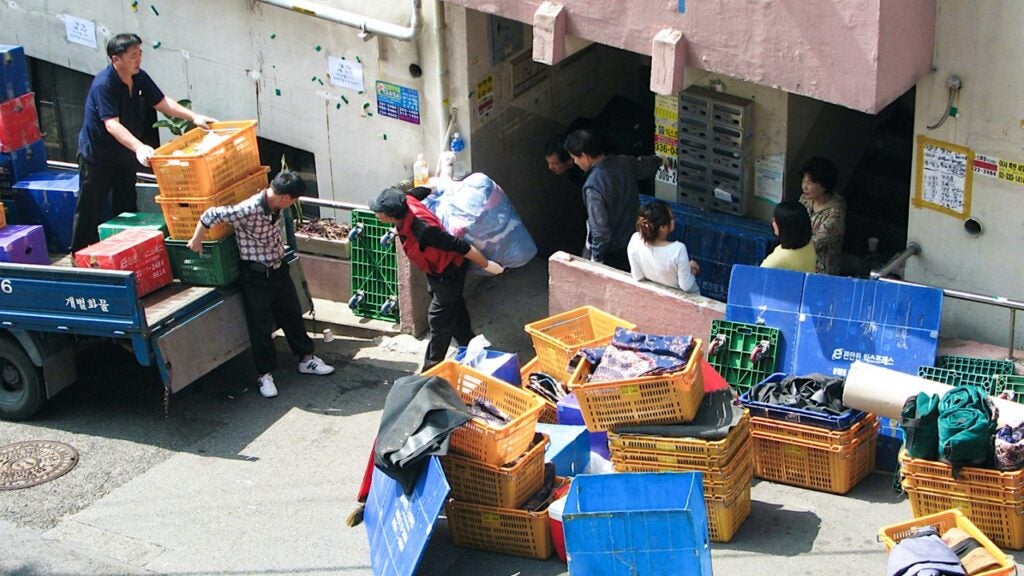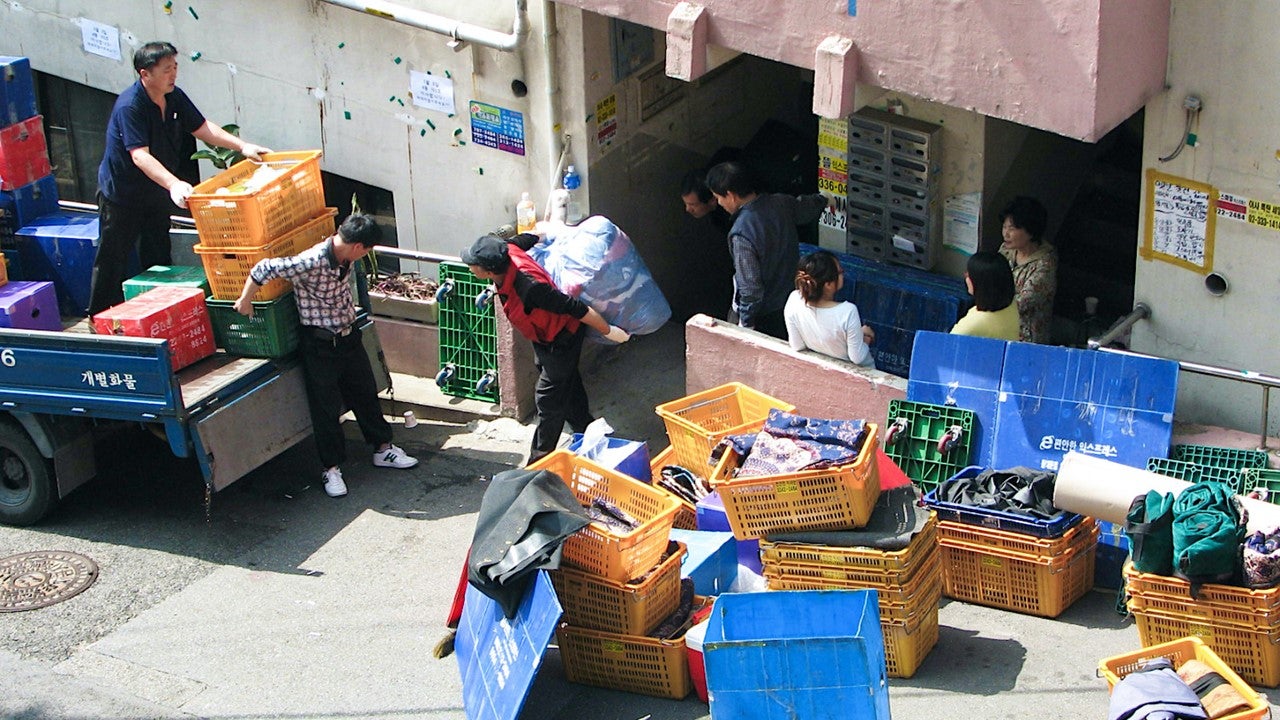Events
Korean Neighbourhoods beyond Korea: Localities, Social Networks and Identities in Seoul, Kyoto and Hanoi
| Date | : | 04 Feb 2025 |
| Time | : | 16:00 – 17:30 (SGT) |
| Venue | : | Hybrid (Online via Zoom & AS8 04-04) |
| Contact Person | : | LIM, Zi Qi |
CHAIRPERSON
Prof Tim Bunnell, Asia Research Institute, and Department of Geography, National University of Singapore
PROGRAMME
| 16:00 |
WELCOME REMARKS |
| 16:10 |
PRESENTATIONS
Community Capacity Building in Marginalised Neighbourhood Communities in Seoul
Multiculturalism and Community Building within the Korean Community in Kyoto
Sojourning Korean Expatriates and the Ethnic Enclave in Hanoi |
| 16:55 | DISCUSSION |
| 17:30 | END |
INTRODUCTION
Neighbourhoods are known for their social networks and identities embedded in particular places. The seminar will focus on three Korean neighbourhoods with strong social networks and distinct identities based on social class and/or ethnicity. Of these, only Haengdang-dong is located in Korea. It used to be one of the largest shantytowns in central Seoul. By contrast, My Dinh is a growing ethnic enclave of Korean expatriates in Hanoi, Vietnam. While Higashi Kujo is also an ethnic enclave of Zainichi Koreans in Kyoto, Japan, it has also experienced social and economic marginalisation in everyday life similar to Haengdang-dong. Their comparison helps to understand Korean neighbourhoods not only as particular places with strong social networks and distinct identities, but also as sites of community building, social learning and innovation, local entrepreneurship, and collective consumption in each city. This highlights a further importance of neighbourhoods. Neighbourhood as a method can reveal larger social and urban transformations in Asian societies, as well as local strategies to address growing sustainability challenges in Asian cities.
This seminar is also part of a research on collective action, social innovation and resilient communities in East Asian and European cities, that is taking place at the Department of Asian Studies, University of Ljubljana.
ABSTRACTS
Community Capacity Building in Marginalised Neighbourhood Communities in Seoul | Blaž Križnik, University of Ljubljana
Neighbourhood communities are recognised as sites of experimentation, social learning and social innovation that can enable and sustain transformative social change in cities. Community capacity building is crucial for transformative social change. It fosters shared knowledge, community strategies, collective action and coalition building among stakeholders that can strengthen the resilience of neighbourhood communities by improving their capacity to adapt to and mitigate the adverse impacts of climate and social change. The study focuses on a neighbourhood community in Haengdang-dong in Seoul. It examines actors, forms of collective action and the production of shared meanings to better understand community capacity building and its impact on the resilience of neighbourhood communities. The study argues that severe economic deprivation and social marginalisation, together with committed community organisers were the main factors contributing to social innovation and the subsequent formation of a resilient neighbourhood community in Haengdang-dong. At the same time, the study sheds light on the changing social importance of neighbourhood communities in South Korea.
Multiculturalism and Community Building within the Korean Community in Kyoto | Nataša Visočnik Gerželj, University of Ljubljana
This presentation explores the emergence of the idea of a “multicultural coexistence,” and focuses on the integration of foreigners in Japan. In the foreground of this endeavour has long been the Korean minority and their struggle for their inclusion into Japanese society through various types of civic organisations and neighbourhood associations. As a case study, a machizukuri community building process in Higashi Kujo in Kyoto and, in particular, the Madang Festival are presented along with details of their organisation, revealing the multiple meanings of the process and festival. The machizukuri in Kyoto began under the liberation movement of another marginalised group, the burakumin (people of buraku), who lived in the same neighbourhood and also influenced the struggle of Zainichi Koreans. Through a close look at these cases, the article shows how different groups of people work together to make their society a shared and globalised community. By looking at this, it is possible to learn that the involvement of one group in the process of community building can serve as know-how for other marginalised communities in developing collaboration with cities and local self-governing bodies.
Sojourning Korean Expatriates and the Ethnic Enclave in Hanoi | Kong Chong Ho, National University of Singapore (with Hae Young Yun and Jeehun Kim)
This paper examines two groups of expatriate Koreans in Hanoi—skilled/managerial workers and the Korean small-business workers that serve them. The high concentration of expatriates in Hanoi has given rise to a Korean ethnic enclave named My Dinh. From our interviews, we determined that many of the establishments are owned, managed and serviced by Koreans. The easy availability of services offered by these businesses enables the reproduction of Korean social and cultural life through consumption. By highlighting the Korean-owned-and-managed small business character of the urban ethnic economy, we demonstrate the importance of consumption in allowing Korean ways of life to be maintained in a new city. We extend our analysis to Vietnamese consumers of Korean businesses and argue that such enterprises create opportunities for the growing Vietnamese middle class to sample new consumption lifestyles.
ABOUT THE SPEAKERS
Blaž Križnik is Visiting Professor at the Department of Asian Studies, University of Ljubljana. He holds a PhD in Sociology from the Faculty of Social Sciences, University of Ljubljana. Blaž is a former professor of urban sociology at the Graduate School of Urban Studies, Hanyang University. He has also worked as a researcher at the Institute for Advanced Architecture of Catalonia in Barcelona, the Seoul Development Institute, the Seoul National University Asia Center and the Institute for Spatial Policies in Ljubljana, and as a visiting professor at the University of Seoul and Kwangwoon University in Seoul. His research interests include comparative urban studies, urban social movements and Korean studies. He is the co-editor (with Im Sik Cho and Jeffrey Hou) of Emerging Civic Urbanisms in Asia (Amsterdam University Press, 2022).
Nataša Visočnik Gerželj is Associate Professor at the Department of Asian Studies, University of Ljubljana, Slovenia. She holds a PhD from the Department of Ethnology and Cultural Anthropology at the University of Ljubljana. Her research interests lie in the area of identity formation in Japan and South Korea, with a focus on minority groups, including Zainichi Koreans, migrant workers, and marginalised communities. Nataša also researches religious and women’s issues and has conducted studies on the anthropology of the body, dance and space. Her recent research has focused on Zainichi Koreans in Japan and the concept of ‘diaspora at home’, which she has explored through the lens of Zainichi Koreans living in Korea. She is a member of the East Asian Collections project, in which she has conducted research on East Asian collections in Slovenian museums. She is the editor-in-chief of the journal Asian Studies at the Faculty of Arts, University of Ljubljana.
Kong Chong Ho is Head of Urban Studies at Yale-NUS College and Associate Professor of Sociology at the Department of Sociology and Anthropology, National University of Singapore. Trained as a sociologist at the University of Chicago, his research interests are in neighbourhoods and international student mobilities. Much of his published work is on East Asian (Hong Kong, Seoul and Taipei) and Southeast Asian (Hanoi, Bangkok and Singapore) cities. He is the author of Neighbourhoods for the City in Pacific Asia (Amsterdam University Press, 2019) and co-editor (with Jeremie Molho and Marie Gilbert) of City Makers and the Politics of Urban Diversity Governance (IMISCOE, forthcoming).
REGISTRATION
Registration is closed, and instructions on how to participate in this hybrid talk has been sent out to registered attendees. Please write to ziqi@nus.edu.sg if you would like to attend the event.



